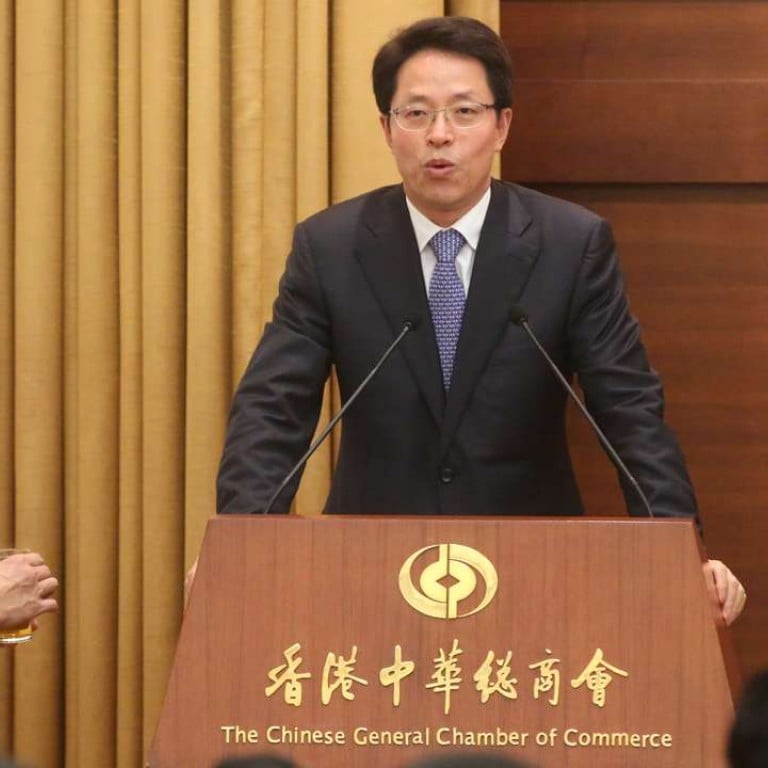
Don’t let Legco elections become stage for promoting independence, warns Beijing’s top man in Hong Kong
Liaison office director Zhang Xiaoming asks if letting independence advocates run in polls is in line with ‘one country, two systems’
Beijing’s top representative in Hong Kong has warned against allowing the Legislative Council elections in September to be used as a platform to promote independence in breach of the Basic Law.
Reflecting Beijing’s position for the first time on controversial changes to election rules announced last week, Zhang Xiaoming said it was a matter of principle, rather than a legal issue, to allow independence advocates to promote such ideas.
He questioned whether allowing independence advocates to run and even enter the legislature was in line with the “one country, two systems” policy of governing Hong Kong, warning of the risk of “calamity” otherwise.
At the same time, he also gave an assurance that Beijing would stick to the one country, two systems principle and not “mainlandise” Hong Kong or turn it into another Shanghai or Guangzhou.
Under the changed election rules, candidates for September have to sign the standard declaration pledging allegiance to the Basic Law, as well as a new form confirming their understanding and acceptance of three articles in the mini-constitution spelling out the city’s status as an inalienable part of China.
Pan-democrat and localist candidates have already started boycotting the new form while handing in their nominations for September, complaining that it smacks of political censorship.
At the inauguration ceremony yesterday for a preparatory committee for National Day celebrations, Zhang did not directly refer to the new declaration rule, but said: “If Hong Kong independence advocates are allowed to turn the run-up to the Legco elections into a process of proactive promotion of pro-independence remarks and activities, or are even allowed to enter Legco openly and gloriously, does this comply with the ‘one country, two systems’ principle, the Basic Law and the principle of the rule of law?
“What direction would it take Hong Kong society in? Does it bring blessings or calamity to the city? This is not just a technical and legal matter, but also one of right and wrong, bottom line and principle, and concerns the city’s general direction of development.”
During his visit to Hong Kong in May, National People’s Congress chairman Zhang Dejiang (張德江 ), the state leader overseeing the city’s affairs, had said that Hongkongers were discerning enough to know whether calls for independence would bring advancement or adversity.
The Hong Kong Indigenous party’s Edward Leung Tin-kei, one of the localist candidates who have refused to sign the new declaration, blamed Beijing for the current situation and argued that the Basic Law protected their freedom of speech and right to advocate independence.
Chief Secretary Carrie Lam Cheng Yuet-ngor said the government was “totally justified” in imposing the new requirement but she remained vague on enforcement. “The decision might not be as simple as whether the form was signed,” she said.
But Anson Wong Man-kit, chairman of the Bar Association’s committee on constitutional affairs and human rights, said that according to the law, candidates could run as long as they made the standard declaration.

